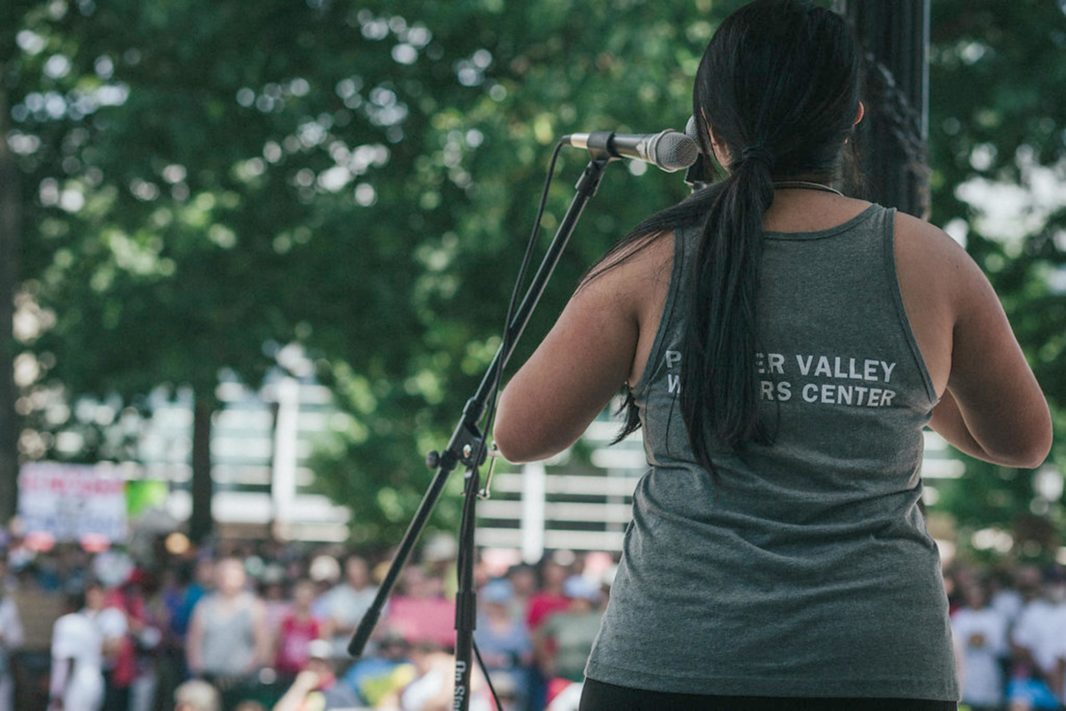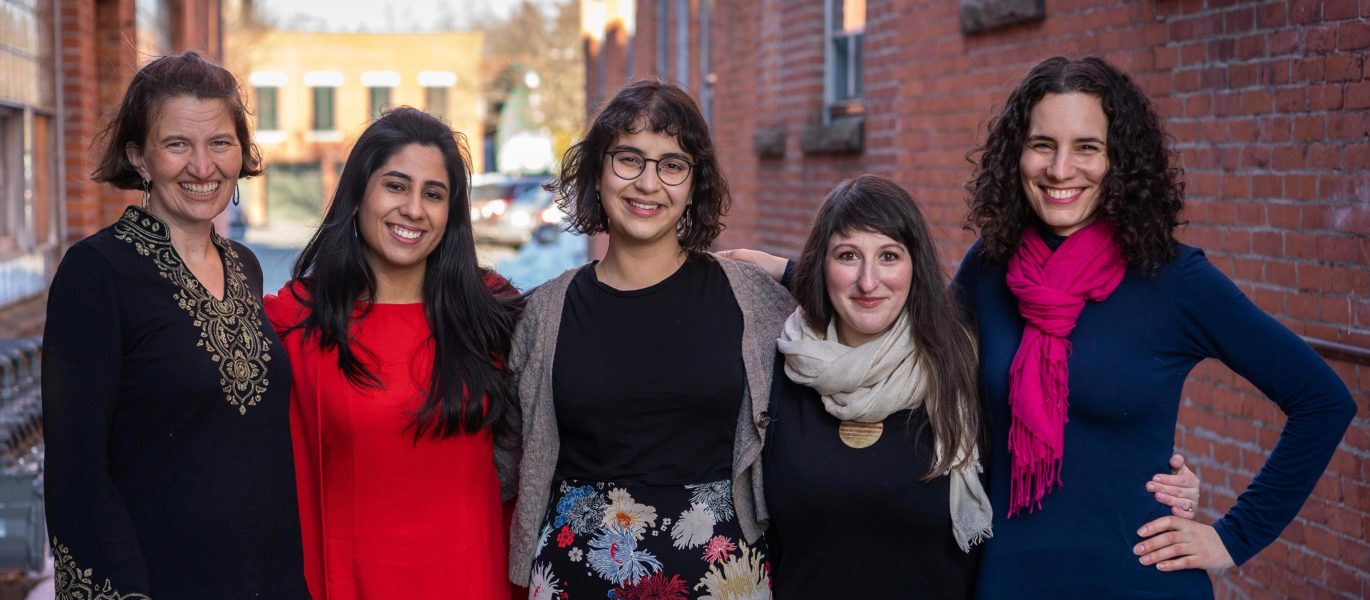Back in May, Western Massachusetts-based community building organization The Pioneer Valley Workers Center was awarded a 2019 James Beard Foundation Leadership Award.
For foodies who eat out based on the award’s prestigious nominations, this recognition for the PVWC may seem off-brand, but along with its more conspicuous presence in the celebrity chef world , the Beard Foundation also concerns itself with advancing positive conditions for workers in the food industry.
The PVWC is an all-women collective that advocates for change in the complex and deeply inequitable food chain arena. Launched in 2014, it was created after an attempt to unionize area food industry workers. The attempt proved difficult, given the variety of tasks, locations, hours, languages and ability to easily communicate across the community. Instead, the PVWC formed, based on much of the knowledge gained during the pursuit to unionize.
The PVWC fights for collective power, racial equality and economic justice for workers active in the food chain structure. The word ‘collective’ in its name is significant, with worker committees conceptualizing the direction of the organization, with the board and the staff — four co-directors and three organizers — taking action based on specific guidance from the worker committees.
It’s an impressive mission and an impressive organization, and winning the James Beard Award is a huge accomplishment that recognizes, on a national level, the hard work of the member-led collective.
“The actions of the Center are born out of the needs of the community, built from within, not from the top down. Normally, there is an hierarchy from the board, to staff, to members,” says board member Christa Douaihy. “Here, our campaigns are built out of the findings and needs of the worker committees who come together to discuss goals, dreams, conditions and objectives. They then direct the staff on what actions to take. Decision making is truly driven by its members.”
Our campaigns are built out of the findings and needs of the worker committees who come together to discuss goals, dreams, conditions and objectives.
Gabriella della Croce, one of the PVWC’s four co-directors, says, “The award belongs to the collective. The members are the people who are working under extreme conditions, long hours, at low wages, and it is an honor to accept the award on their behalf.”
In fact, della Croce is no stranger to the Beard awards. Her mother — the distinguished food writer Julia Della Croce — was nominated for a James Beard award in 1995 for her cookbook “The Vegetarian Table.”
Della Croce believes deeply in the work the Center is doing and has devoted her life to activism. Her upbringing makes for a solid background in understanding the complexities of producing food. Her Italian grandparents immigrated from Apulia and Sardinia. Raising one’s own produce, preparing seasonal food, making things by hand and sourcing locally weren’t a new theory for her family, they were simply logical.

Jason Kotoch
PVWC organizer Hodaliz Borrayes addresses a crowd last summer.
“The Center team brings a lot of theory, history, critical thinking and analysis to their internal communications and everyday work,” reflects Douaihy, who represents low income workers as an attorney in a social justice litigation firm. “My commitment to the Center is based on the knowledge that, as an attorney, there’s a certain power in that one can help demystify the law in order to help analyze problems and direct action.”
The PVWC produces campaigns that confront an interconnected web of exploitation and immigration concerns. As one of a network of like-minded organizations that’s growing nationwide, the Center deals with daily practicalities workers face, such as transportation and translation, to lobbying for changes in laws — locally, state-wide and nationally — to creating upbeat community events. Some of the issues they grapple with are minimum wage pay, wage theft, unpaid overtime, immigration status, child care, sexual harassment, lack of medical care, undocumented presence, and perhaps the most egregious, on-going attempts to silence the workers’ voices.
PVWC has successfully lobbied for changes in local laws which tie approval of business licenses to adequate compliance with wage and hour laws. The cities of Springfield, Northampton, Amherst and Holyoke, based on the Center’s advocacy, have passed Sanctuary City ordinances, which ensures that police don’t collaborate with immigration enforcement officials beyond what is appropriate.
Staff member Hodaliz Borrayes, whose parents came here from Guatemala, feels strongly about advocating for the rights of immigrants, and she shares information about the Center with her community.
“We make every effort to get the word out to the entire community,” she says. “Sometimes organizing is part of regular life, but mostly it is reaching out to more and more workers. We hope to supply information, build interest, inform people how they can get involved and provide short and long-term support for workers.”
“It’s harder to see the poverty in rural areas than in a city, even in this liberal area,” della Croce says. “We’ve been hearing about animal rights, sustainable food, local food — which obscures the low wages paid to the workers producing the ‘local’ food — but less about worker rights. Fortunately, in the past few years, more attention has been paid to labor rights nationwide.”
“Clients have said, ‘The Center has given us power,’” says Borrayes, “[and it is] something necessary for change, something that is important and something we’re proud of.”
“Clients have said, ‘The Center has given us power,’” says Borrayes, “[and it is] something necessary for change, something that is important and something we’re proud of.”
“The collective is innovative and courageous,” says Douaihy, “It is doing something that is ambitious and, frankly, audacious. We are connecting the dots between two extremely complex related topics: immigration rights and workers’ rights. We are staying true to our mission by trying to balance the inequities within the food chain system.”



 4 min read
4 min read



